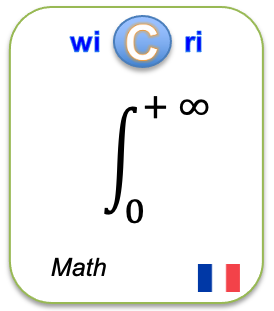Galois Cohomology of Classical Groups
Identifieur interne : 001356 ( Istex/Curation ); précédent : 001355; suivant : 001357Galois Cohomology of Classical Groups
Auteurs : R. Parimala [Inde]Source :
- Trends in Mathematics ; 1999.
Abstract
Abstract: In this article, we survey recent results of Eva Bayer-Fluckiger and the author on the Galois cohomology of classical groups over fields of virtual cohonological dimension 2. Number fields are examples of such fields. We begin by describing a well-known classification theorem for quadratic forms over number fields in terms of the so-called classical invariants (§ 2). We explain in § 3 how this classification leads to Hasse principle for principal homogeneous spaces for Spin q over number fields. In § 4 and § 7, we state the conjecture of Serre concerning the triviality of principal homogeneous spaces under semi-simple, simply connected, linear algebraic groups over perfect fields of cohomological dimension 2 and its real analogue due to Colliot-Thélène and Scheiderer in the form of a Hasse principle, if the field has virtual cohomological dimension ≤ 2. As in the case of Spin q over number fields, a main step in the proof of these conjectures is a classification theorem of hermitian forms over involutorial division algebras defined over fields of virtual cohomological dimension ≤ 2, which is described in § 6 and § 7.
Url:
DOI: 10.1007/978-3-0348-9996-3_7
Links toward previous steps (curation, corpus...)
- to stream Istex, to step Corpus: Pour aller vers cette notice dans l'étape Curation :001356
Links to Exploration step
ISTEX:5F50359C5A39A1B9B91D4F03834BC8C2434BB5AALe document en format XML
<record><TEI wicri:istexFullTextTei="biblStruct"><teiHeader><fileDesc><titleStmt><title xml:lang="en">Galois Cohomology of Classical Groups</title><author><name sortKey="Parimala, R" sort="Parimala, R" uniqKey="Parimala R" first="R." last="Parimala">R. Parimala</name><affiliation wicri:level="1"><mods:affiliation>School of Mathematics, Tata Institute of Fundamental Research, Homi Bhabha Road, 400 005, Bombay, India</mods:affiliation><country xml:lang="fr">Inde</country><wicri:regionArea>School of Mathematics, Tata Institute of Fundamental Research, Homi Bhabha Road, 400 005, Bombay</wicri:regionArea></affiliation><affiliation wicri:level="1"><mods:affiliation>E-mail: parimala@tifrvax.tifr.res.in</mods:affiliation><country wicri:rule="url">Inde</country></affiliation></author></titleStmt><publicationStmt><idno type="wicri:source">ISTEX</idno><idno type="RBID">ISTEX:5F50359C5A39A1B9B91D4F03834BC8C2434BB5AA</idno><date when="1999" year="1999">1999</date><idno type="doi">10.1007/978-3-0348-9996-3_7</idno><idno type="url">https://api.istex.fr/document/5F50359C5A39A1B9B91D4F03834BC8C2434BB5AA/fulltext/pdf</idno><idno type="wicri:Area/Istex/Corpus">001356</idno><idno type="wicri:explorRef" wicri:stream="Istex" wicri:step="Corpus" wicri:corpus="ISTEX">001356</idno><idno type="wicri:Area/Istex/Curation">001356</idno></publicationStmt><sourceDesc><biblStruct><analytic><title level="a" type="main" xml:lang="en">Galois Cohomology of Classical Groups</title><author><name sortKey="Parimala, R" sort="Parimala, R" uniqKey="Parimala R" first="R." last="Parimala">R. Parimala</name><affiliation wicri:level="1"><mods:affiliation>School of Mathematics, Tata Institute of Fundamental Research, Homi Bhabha Road, 400 005, Bombay, India</mods:affiliation><country xml:lang="fr">Inde</country><wicri:regionArea>School of Mathematics, Tata Institute of Fundamental Research, Homi Bhabha Road, 400 005, Bombay</wicri:regionArea></affiliation><affiliation wicri:level="1"><mods:affiliation>E-mail: parimala@tifrvax.tifr.res.in</mods:affiliation><country wicri:rule="url">Inde</country></affiliation></author></analytic><monogr></monogr><series><title level="s">Trends in Mathematics</title><imprint><date>1999</date></imprint></series></biblStruct></sourceDesc></fileDesc><profileDesc><textClass></textClass><langUsage><language ident="en">en</language></langUsage></profileDesc></teiHeader><front><div type="abstract" xml:lang="en">Abstract: In this article, we survey recent results of Eva Bayer-Fluckiger and the author on the Galois cohomology of classical groups over fields of virtual cohonological dimension 2. Number fields are examples of such fields. We begin by describing a well-known classification theorem for quadratic forms over number fields in terms of the so-called classical invariants (§ 2). We explain in § 3 how this classification leads to Hasse principle for principal homogeneous spaces for Spin q over number fields. In § 4 and § 7, we state the conjecture of Serre concerning the triviality of principal homogeneous spaces under semi-simple, simply connected, linear algebraic groups over perfect fields of cohomological dimension 2 and its real analogue due to Colliot-Thélène and Scheiderer in the form of a Hasse principle, if the field has virtual cohomological dimension ≤ 2. As in the case of Spin q over number fields, a main step in the proof of these conjectures is a classification theorem of hermitian forms over involutorial division algebras defined over fields of virtual cohomological dimension ≤ 2, which is described in § 6 and § 7.</div></front></TEI></record>Pour manipuler ce document sous Unix (Dilib)
EXPLOR_STEP=$WICRI_ROOT/Wicri/Mathematiques/explor/BourbakiV1/Data/Istex/Curation
HfdSelect -h $EXPLOR_STEP/biblio.hfd -nk 001356 | SxmlIndent | more
Ou
HfdSelect -h $EXPLOR_AREA/Data/Istex/Curation/biblio.hfd -nk 001356 | SxmlIndent | more
Pour mettre un lien sur cette page dans le réseau Wicri
{{Explor lien
|wiki= Wicri/Mathematiques
|area= BourbakiV1
|flux= Istex
|étape= Curation
|type= RBID
|clé= ISTEX:5F50359C5A39A1B9B91D4F03834BC8C2434BB5AA
|texte= Galois Cohomology of Classical Groups
}}
|
| This area was generated with Dilib version V0.6.33. | |



